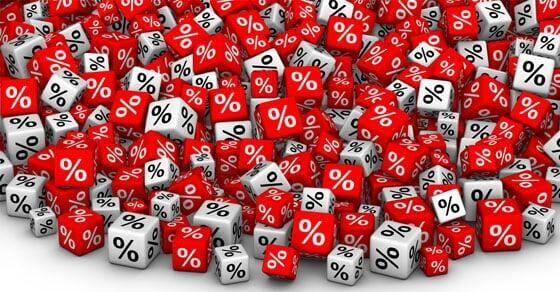
In a business valuation context, the term “marketability” refers to the ability to quickly convert property to cash at minimal cost. While publicly traded stocks are readily marketable, interests in private companies typically require substantial time, cost and effort to sell. To the extent that public stock data is used to value private businesses, a discount may be warranted to reflect the lack of marketability. However, an important distinction must be made when applying these discounts to controlling interests.
Minority vs. controlling interests
Marketability discounts are well established when valuing minority interests in closely held businesses. Several empirical studies support and quantify these discounts. Restricted stock and pre-IPO studies, for example, demonstrate the spread between prices paid for freely traded shares and identical shares that are less marketable because they’re restricted or not yet publicly traded. Discounts typically average between 30% and 45%.
Using marketability discounts for controlling interests is controversial, although courts have sometimes accepted them. Most experts agree that the size of marketability discounts shrinks as the level of control increases. But while many argue that some amount of discount is available at all levels of control — even 100% — others say it’s inappropriate to apply a marketability discount to a controlling interest.
Illiquidity
Marketability discounts applied to controlling interests are sometimes referred to as “illiquidity” discounts to help differentiate them from discounts taken on minority interests. With a controlling interest, it takes time and expense to complete a sale. The discount reflects the uncertainty and risk associated with the timing of the sale and the ultimate price.
The rationale underlying taking a marketability discount on a controlling interest is that fair market value is a cash equivalent concept. In contrast, a future sale of a controlling interest is speculative and expensive. The deal also may include noncash terms, such as employment contracts, restricted stock or installment payments.
For example, in a divorce case, it may seem inequitable for one spouse to receive $1 million of an illiquid business, while the other spouse receives $1 million of cash and real estate, which are considerably more liquid.
When quantifying illiquidity discounts, valuation experts consider the time, costs and risks of selling a business (or a controlling interest within it). Alternatively, they may estimate the costs of going public. No official empirical data exists to support marketability discounts on controlling interests. But all else being equal, most experts agree the discount for a controlling interest should generally be lower than for a minority interest in the same company.
Case in point
To see how this can play out in court, let’s look at a recent divorce case where the husband’s expert applied a marketability discount on a controlling interest in the husband’s dental practice. (Kakollu v. Vadlamudi, No. 21A-DC-96, Ind. App., July 26, 2021.)
The wife’s valuation expert valued the entire practice at $3 million. The husband’s expert arrived at a value of $1.56 million after taking a 45% marketability discount. The lower court rejected the expert’s discount because he admitted that:
- A discount greater than 35% would likely draw IRS attention, if it was taken in a valuation prepared for federal tax purposes,
- Controlling interests may be easier to sell than minority interests,
- Dental practices are easily tradeable as they have a ready market of purchasers (new dentists) graduating each year, and
- The husband had no intention to sell his practice.
Because the marketability discount was the primary reason for the difference between the experts’ values, the trial court accepted the analysis prepared by the wife’s expert. The Indiana Court of Appeals upheld the decision, concluding that there was no requirement for the trial court to apply a marketability discount when determining the value of a business.
Contact us
The application and magnitude of marketability discounts are matters of professional judgment and can vary significantly from one valuation assignment to the next. We can help you support or challenge the use of a marketability discount for a specific case.
© 2022
